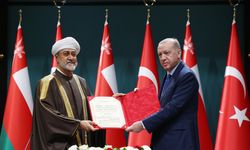Poland’s Ministry of Defense has signed a framework agreement with South Korea’s Kia for the delivery of 1,266 Legwan 4x4 light tactical vehicles by 2035. The contract, announced on September 25, 2025, by Deputy Prime Minister and Defense Minister Władysław Kosiniak-Kamysz, is valued at $2.6 billion. The signing ceremony took place at the Rosomak SA plant in Siemianowice Śląskie.
The Legwan program is based on the Kia Light Tactical Vehicle platform and will provide the Polish Army with multiple configurations, including reconnaissance variants, high-mobility trucks, troop transports, 4x4 tactical support vehicles, and mobile technical workshops. Deliveries will be paired with logistics and training packages to support long-term operations.
Kosiniak-Kamysz highlighted the industrial importance of the deal, linking it to Poland’s wider defense modernization and domestic production efforts. “These will be Legwan vehicles in various versions. This shows that the cooperation proposed by President Leszkiewicz between Rosomak, Jelcz, and Autosan seems entirely justified. The arms industry must be the driving force of the Polish economy. Silesia can and should become the center of the arms industry in Poland,” he said.
The program is also described as a response to lessons from the war in Ukraine, with flexible contract terms allowing technical adjustments to meet evolving battlefield requirements. According to Kosiniak-Kamysz, “systems that were current yesterday are changing rapidly.”
The Legwan fleet will enhance the tactical mobility and command capabilities of Polish forces, particularly reconnaissance units and armored formations equipped with K2PL tanks. The vehicles are also being positioned as a potential export product, with Polish defense companies expressing interest in following the model of previous exports such as the Krab howitzer and Rosomak APC. “The Rosomak, but also the Legwan, can become an export product. I’m counting on you, on your expertise and energy,” the minister told employees during the announcement.
By anchoring the program in the domestic industrial base through PGZ and cooperation with Korean partners, the deal is intended to strengthen supply chain resilience and reduce reliance on foreign deliveries.










